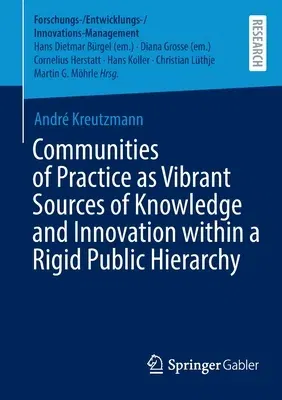André Kreutzmann
(Author)Communities of Practice as Vibrant Sources of Knowledge and Innovation Within a Rigid Public Hierarchy (2022)Paperback - 2022, 30 January 2022

Qty
1
Turbo
Ships in 2 - 3 days
In Stock
Free Delivery
Cash on Delivery
15 Days
Free Returns
Secure Checkout
Part of Series
Forschungs-/Entwicklungs-/Innovations-Management
Print Length
135 pages
Language
English
Publisher
Springer Gabler
Date Published
30 Jan 2022
ISBN-10
365836534X
ISBN-13
9783658365349
Description
Product Details
Author:
Book Edition:
2022
Book Format:
Paperback
Country of Origin:
NL
Date Published:
30 January 2022
Dimensions:
21.01 x
14.81 x
0.91 cm
ISBN-10:
365836534X
ISBN-13:
9783658365349
Language:
English
Location:
Wiesbaden
Pages:
135
Publisher:
Weight:
213.19 gm

